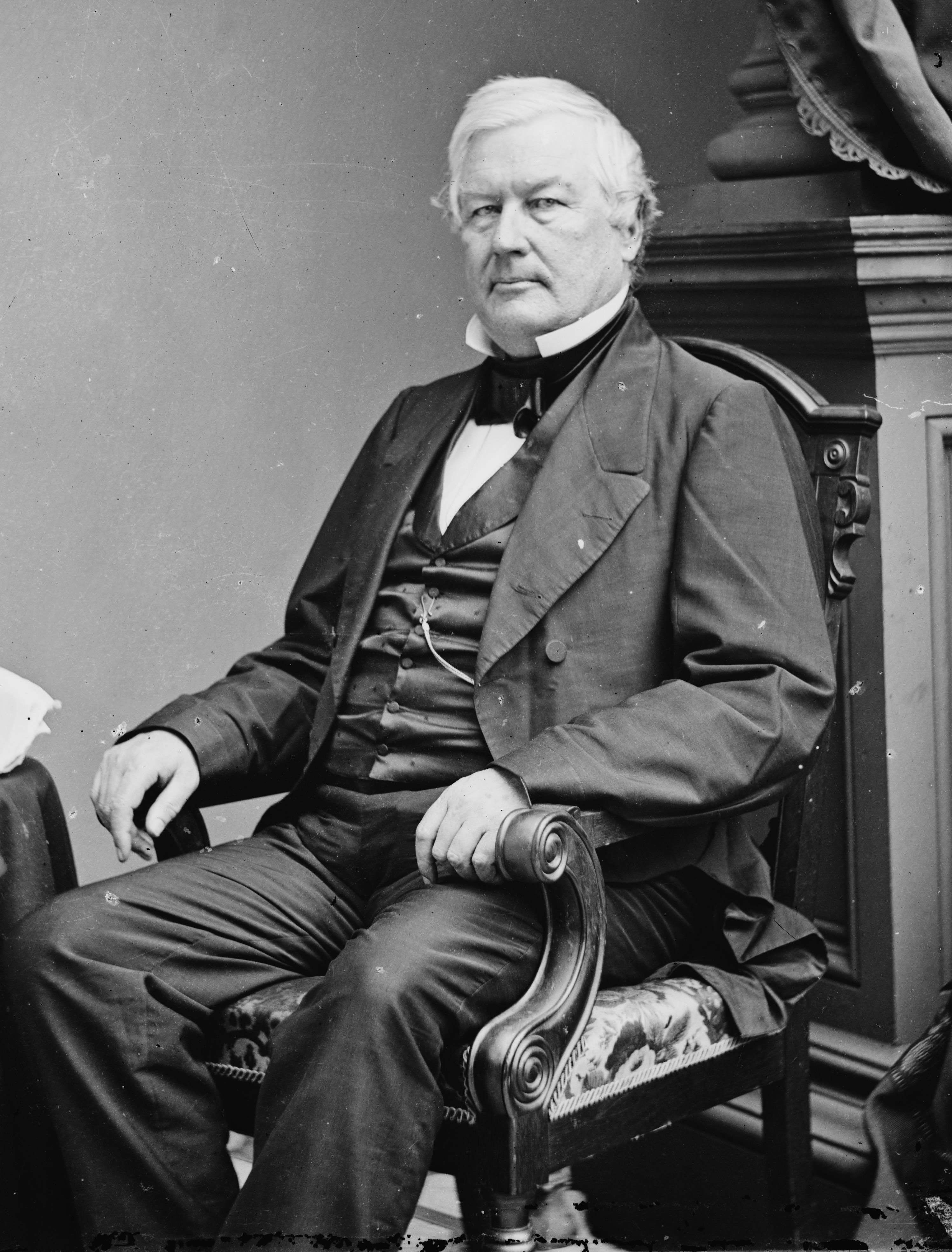Millard Fillmore was the 13th President of the United States , the last to be a member of the Whig Party while in the White House. A former U.S. Representative from New York, Fillmore was elected the nation's 12th Vice President in 1848, and was elevated to the presidency by the death of Zachary Taylor. He was instrumental in getting the Compromise of 1850 passed, a bargain that led to a brief truce in the battle over slavery. He failed to win the Whig nomination for president in 1852; he gained the endorsement of the nativist Know Nothing Party four years later, and finished third in that election.
Fillmore was born into poverty in the Finger Lakes area of New York state—his parents were tenant farmers during his formative years. He rose from poverty through study, and became a lawyer with little formal schooling. He became prominent in the Buffalo area as an attorney and politician, was elected to the New York Assembly in 1828, and to the U.S. House of Representatives in 1832. Initially, he belonged to the Anti-Masonic Party, but became a Whig as the party formed in the mid-1830s; he was a rival for state party leadership with editor Thurlow Weed and Weed's protégé, William H. Seward. Through his career, Fillmore declared slavery an evil, but one beyond the powers of the federal government, whereas Seward was not only openly hostile to slavery, he argued that the federal government had a role to play in ending it. Fillmore was an unsuccessful candidate for Speaker of the House when the Whigs took control of the chamber in 1841, but was made Ways and Means Committee chairman. Defeated in bids for the Whig nomination for vice president in 1844, and for New York governor the same year, Fillmore was elected Comptroller of New York in 1847, the first to hold that post by direct election.
Fillmore received the Whig vice presidential nomination in 1848 as Taylor's running mate, and the two were elected. He was largely ignored by Taylor, even in the dispensing of patronage in New York, on which Taylor consulted Weed and Seward. As vice president, Fillmore presided over angry debates in the Senate as Congress decided whether to allow slavery in the Mexican Cession. Fillmore supported Henry Clay's Omnibus Bill though Taylor did not. After President Taylor died in July 1850, Fillmore dismissed the cabinet and changed the administration's policy. The new president exerted pressure to gain the passage of the Compromise, which gave legislative victories to both North and South, and which was enacted by September. The Fugitive Slave Act, expediting the return of escaped slaves to those who claimed ownership, was a controversial part of the Compromise, and Fillmore felt himself duty-bound to enforce it, though it damaged his popularity and also the Whig Party, which was torn North from South. In foreign policy, Fillmore supported U.S. Navy expeditions to open trade in Japan, opposed French designs on Hawaii, and was embarrassed by Narciso López's filibuster expeditions to Cuba. He sought election to a full term in 1852, but was passed over by the Whigs in favor of Winfield Scott.
As the Whig Party broke up after Fillmore's presidency, many in Fillmore's conservative wing joined the Know Nothings, forming the American Party. In his 1856 candidacy as that party's nominee, Fillmore had little to say about immigration, focusing instead on the preservation of the Union, and won only Maryland. In retirement, Fillmore was active in many civic endeavors—he helped in founding the University of Buffalo and served as its first chancellor. During the American Civil War, Fillmore denounced secession and agreed that the Union must be maintained by force if necessary, but was critical of the war policies of Abraham Lincoln. After peace was restored, he supported the Reconstruction policies of President Andrew Johnson. Though he is relatively obscure today, Fillmore has been praised by some, for his foreign policy, and criticized by others, for his enforcement of the Fugitive Slave Act and his association with the Know Nothings. Historians and scholars have consistently ranked Fillmore as one of the worst presidents.
✵
7. January 1800 – 8. March 1874
